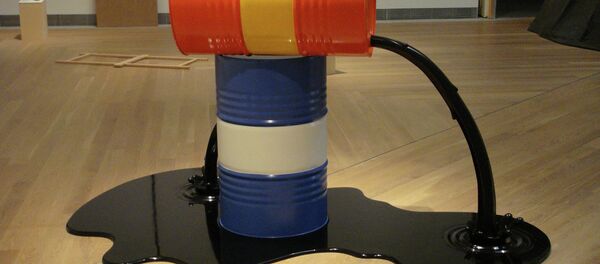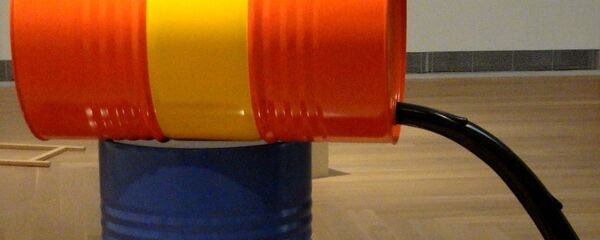According to figures from Russia's Central Bank, the dollar/ruble rate was 70.4 on December 17, a decline of 5.5 percent since December 1, when it was 66.74.
Konstantin Kholodilin, a senior researcher at the German Institute for Economic Research in Berlin, told Deutsche Welle (DW) that this year's fall was caused exclusively by the fall in the oil price, in contrast to the decline in value which occurred last year.
On December 2, 2014, the dollar/ruble rate was 49.32, and by December 31 it had fallen to 56.26, representing a decrease of 12 percent.
"In December last year, currency market expectations were also being influenced by the sanctions from Western countries which had been recently imposed. Now, new sanctions are not being proposed, only the prolongation of existing ones," said the analyst.
"It (the weak ruble) allows enterprises to strengthen their position in the domestic market and widen possibilities for export, since it increases the international competitiveness of Russian products."
Andreas Mannicke, a Russian and Eastern European market analyst, said that while last year Russia's Central Bank was forced to hike interest rates from 10.5 percent to 17 percent on December 16 in response to the ruble's fall in value, this time there won't be such a reaction.
This year, the regulator has been gradually lowering its key interest rate. In February it was 15 percent; it has been stable at 11 percent since August.
Mannicke, who writes the East Stock Trends bulletin, believes that greater foreign investment is crucial to the development of Russia's export sector. According to his research, the cost per unit of labor in the Russian car industry is now less than in countries such as Turkey and Romania, which the sector can use to its advantage.
Mannicke also agreed with Kholodilin that the price of oil will be a deciding factor affecting the ruble's behavior in 2016, and thinks there is a good possibility that its value will rise from its current level of $37-38 per barrel to around $50 next year. In that case, he said the ruble/euro rate could strengthen from its current value of 77 to as much as 65.





